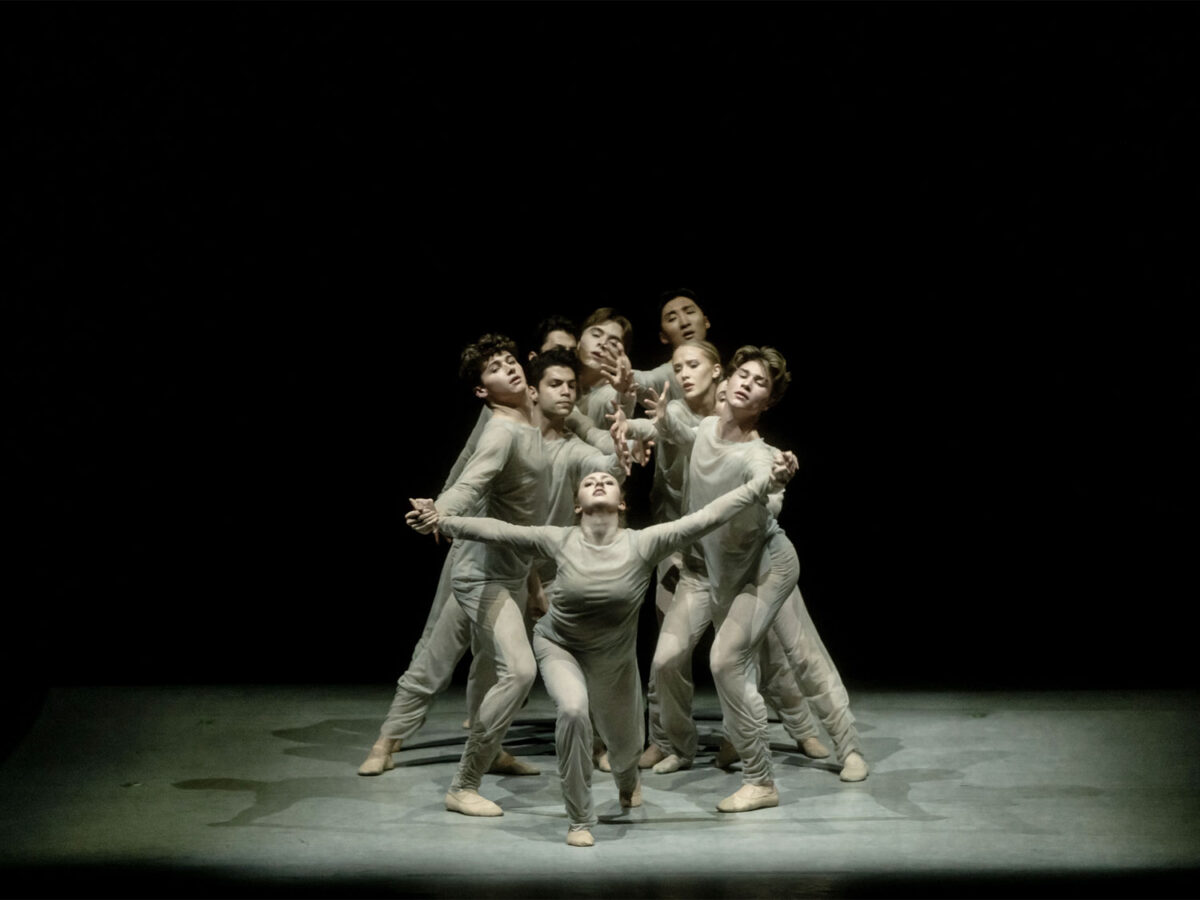“Janet Planet,” written and directed by Pulitzer Prize-winning playwright Annie Baker, rotates around the mother-daughter relationship between Janet and 11-year-old Lacy. It’s complicated, loving, and as sweet and sour as those bonds can be.
It’s 1991 and the beginning of summer vacation when we meet Lacy as she sneaks out of her camp cabin to make a 911 call to her mother. “If you don’t come get me, I’ll kill myself” or words to that effect expressing her extreme displeasure at having to endure one more Kum Ba Yah moment. Lacy, an awkward pre-teen with glasses, freckles and a pubescent nose too large for her face, is convinced that no one likes her and that she doesn’t fit in. Janet, her mother, knowing her daughter all too well, disengages temporarily from current boyfriend Wayne and heads out to the camp. False alarm. Lacy has found friends and wants to stay. Nope. She made her bed and will have to sleep in it at home, with Janet and Wayne.
Lacy is in the pre-adolescent or possibly the beginning of a long quest to find herself. Mom, on the other hand, is still searching. “Janet Planet” is broken up into three parts, all Janet-related. The first concerns Wayne, part of Janet’s never-ending stream of inappropriate or barely viable partners who last only long enough for Lacy to pass judgment. As disposable as a tissue, his only real value, as fleeting as could be, was his daughter Sequoia, Lacy’s age and totally engaging. The one afternoon Lacy spends mall-grazing with Sequoia is the sum total of her interest in Wayne. Soon, like so many before him, he’s out the door.
Taking Lacy to a quasi-Renaissance Fair production, Janet is surprised and happy to run into an old friend, Regina. Regina’s and Janet’s orbits intersected long ago. Regina, an actress, is now attached to a quasi-hippie commune, having followed its leader, Avi, into romance, enlightenment and, now, disengagement. As exuberant as Janet is cautious, she soon moves into their lovely abode in the woods, bringing excitement, creativity and fresh air into Lacy’s stuffy environment. Lacy’s inner world, as exemplified by the mini-puppet theater she arranges and rearranges in her room, is happily expanded as she trades solitude for imagination. That her mother soon tires of Regina’s energy, critical observations and spirit was an inevitability. It is, perhaps, this rupture that opens Lacy’s eyes to her mother’s inability to couple introspection with action. Certainly, their personalities were polar opposites but Janet, possibly fearing a connection, sends Regina on her way, ironically trading her in for Avi, leader of the commune and Regina’s former lover.
In a moment of self-awareness, Janet reveals that she has one formidable but counterproductive talent. She can make men fall in love with her. As Lacy comes to realize, this does not seem to yield positive results as Janet’s choices generally produce nothing of substance; certainly not for Lacy.

Photos courtesy of A24
The more things change, the more they remain the same. Janet, somnolently falling in and out of love, still cocoons Lacy in her limited solar system. Lacy, entering a new phase of life that will include middle school and puberty, slowly begins to carve out her own universe, but always keeping her mother tethered to her as a lifeline. Transiency has obviously always been a part of their lives and, based on this particular summer, will continue to be so.
Baker has made a pleasant little film about mother-daughter relationships with quiet, engaging characters. The movie may be entitled “Janet Planet,” but it is more “Lacy’s Universe.” Nothing major happens; the chapters all elucidate the strengths and weaknesses of Janet as seen through Lacy’s prism. It is an especially good dissection of the pre-pubescent period in a young, introspective, intelligent and insecure 11-year-old. Although Janet constantly proclaims herself to be rather plain, this only highlights her insecurities and need to have constant male companionship to give the lie to her self-image. Janet is a lovely if not stunning beauty, and her seeming ability to deemphasize the physical is a positive aspect of her parenting. Lacy is plain, a plainness that shows no sign of improving with age. Her creativity and self-confidence will be her lifesaver as she enters the hell awaiting her in middle school. Her 11th summer has highlighted both her mother’s strengths and weaknesses and gradually allowed Lacy to carve out her own space.
Baker feels the story is “about falling out of love with your mother.” I would disagree. Over the summer, Lacy has been able to see her mother in a more clear-eyed manner. Lacy leads the way in the strengthening of some bonds and the loosening of others. She matures over time, forgiving Janet her co-dependencies and appreciating the focus she still has for her daughter. Janet and Lacy undergo a reversal of roles, in a manner of speaking. Lacy, thanks to her mother’s benign neglect in some cases, is able to sever the ties of childhood and enter into a different relationship that is based on mutual need.
This is a very cast-dependent film and Baker was very lucky in the actors she chose. The men, Will Patton as Wayne and Elias Koteas as Avi, brought a necessary blandness to their roles. Ordinarily this might seem to be a criticism, but in this case it’s not. They effectively highlighted the needs and weaknesses of Janet’s personality. Neither brings anything to the relationship and that is strictly by design. They are exemplars of Janet’s constant need for a placeholder. As Regina, the remarkable Sophie Okonedo lights up the screen with her exuberance and joyful smile. Entrancing and opening up Lacy to more possibilities, it’s clear that her association with Janet was doomed from the start. Her chapter in the film is the most interesting and engaging. Banishing her from their lives said more about Janet than her gravitation toward uninteresting men. Losing Regina was an important step in Lacy’s development and view of her mother.
Julianne Nicholson as Janet was pitch-
perfect. Playing down her natural beauty, she uses inner silence to define her character. Her preternatural calm washes over her personality, yielding an earthiness that establishes who she is or, even, who she’d like to be. It is possible, but unspoken, that her acceptance of her daughter’s needs may actually be part of her own narcissism. Regardless, Nicholson inhabits Janet so that we can see the good while accepting the not so good (there is, actually, no bad here).
But it is the extraordinary Zoe Ziegler as Lacy who is the very personification of adolescence in all its neediness, selfishness, self-awareness, insecurity, hidden secrets and closeted creativity. Ziegler is the engine of this film; “Janet Planet” is, or should be “Lacy Sun” because it is around Lacy that everything revolves. Ziegler, in her feature debut, shows amazing range and an ability to display emotion without histrionics. The very definition of watchable, she steals her scenes quietly, drawing you closer and closer into her realm.
“Janet Planet’ could have used more judicious pruning, something that writers/directors often resist. As it is, this is a good film that could have been a much better one.
Now playing at the Laemmle Royal.
Neely Swanson spent most of her professional career in the television industry, almost all of it working for David E. Kelley. In her last full-time position as Executive Vice President of Development, she reviewed writer submissions and targeted content for adaptation. As she has often said, she did book reports for a living. For several years she was a freelance writer for “Written By,” the magazine of the WGA West, and was adjunct faculty at USC in the writing division of the School of Cinematic Arts. Neely has been writing film and television reviews for the “Easy Reader” for more than 10 years. Her past reviews can be read on Rotten Tomatoes where she is a tomato-approved critic.







